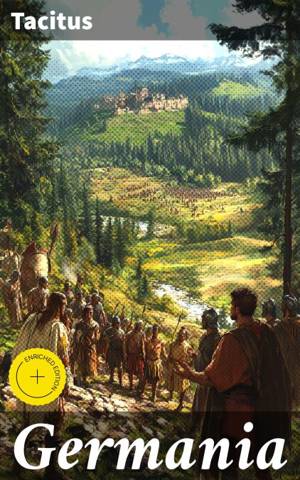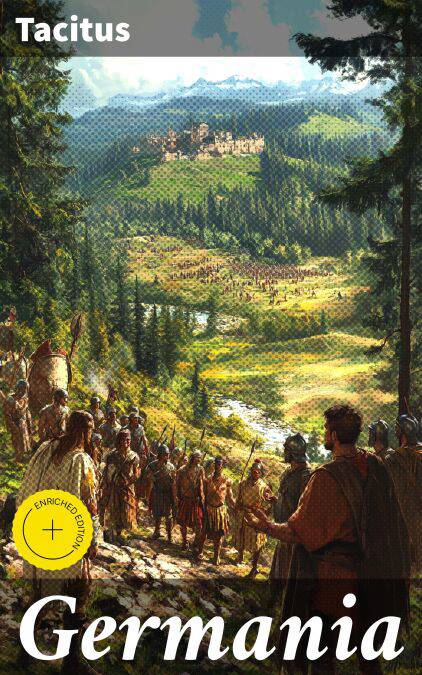
- Retrait gratuit dans votre magasin Club
- 7.000.000 titres dans notre catalogue
- Payer en toute sécurité
- Toujours un magasin près de chez vous
- Retrait gratuit dans votre magasin Club
- 7.000.0000 titres dans notre catalogue
- Payer en toute sécurité
- Toujours un magasin près de chez vous
1,99 €
+ 1 points
Description
In 'Germania', the Roman historian Tacitus presents a meticulous ethnographic study of the diverse tribes inhabiting the region that is now modern-day Germany. Written around AD 98, the text is characterized by its incisive prose and keen observations, blending historical narrative with ethnographic detail. Tacitus employs a comparative approach, juxtaposing the perceived virtues and vices of the Germanic tribes with those of Roman society, thereby reflecting on the broader themes of civilization, cultural integrity, and the moral decay of Rome itself. This work, steeped in the literary traditions of classical antiquity, serves as both a social commentary and a cautionary tale about the fate of societies ensnared by excess and corruption. Tacitus, a senator and a provincial governor, was deeply embedded in the political and cultural dynamics of the Roman Empire. His experiences as a public servant and his ties to the tumultuous events of his time informed his depictions of both Roman and barbaric societies. Tacitus'Äôs rigorous skepticism and pursuit of truth resonate throughout 'Germania', revealing the author's complex understanding of identity, culture, and imperialism, as he critiques Rome's waning influence by highlighting the strength and simplicity of the tribes beyond its borders. 'Germania' is an essential read for anyone interested in ancient history, anthropology, and the formation of cultural identity. Tacitus'Äôs unparalleled insight into the Germanic peoples not only enriches our understanding of the past but also prompts critical reflections on modern societal values and the perennial questions of cultural authenticity. This book is a profound exploration of the intersection between civilization and barbarism that remains relevant for contemporary readers.
Spécifications
Parties prenantes
- Auteur(s) :
- Editeur:
Contenu
- Nombre de pages :
- 25
- Langue:
- Anglais
Caractéristiques
- EAN:
- 4064066444549
- Date de parution :
- 10-04-21
- Format:
- Ebook
- Protection digitale:
- Digital watermarking
- Format numérique:
- ePub

Les avis
Nous publions uniquement les avis qui respectent les conditions requises. Consultez nos conditions pour les avis.






